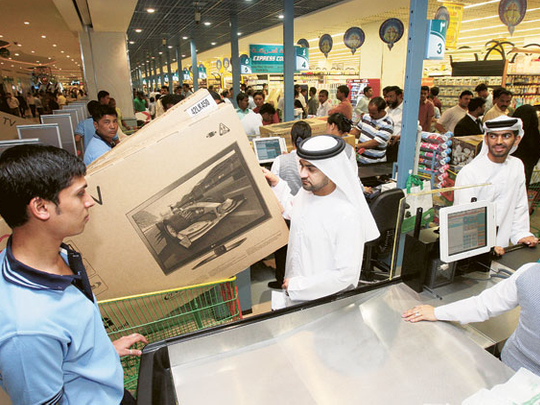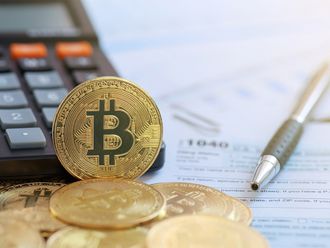
The UAE economy achieved outstanding results in 2011, reflecting steady oil prices, strengthened oil production and spillover effects of the Arab Spring. In fact, it is not easy to disagree with a recent report by Standard Chartered Bank estimating real, adjusted for inflation, economic growth of 3.8 per cent for the UAE in 2011 in the light of the three cited causes.
The notable performance partly reflects the near absence of inflationary threats. Happily, inflation remains non-threatening to the UAE economy by virtue of standing at around 1.6 per cent in 2011 and projected to edge up slightly to 2 per cent in 2012.
To be sure, oil prices continued to hover around $100 (Dh367) per barrel throughout 2011, if only because of doubts surrounding oil supplies from Libya. Still, this very case allowed Opec countries enjoying sustained oil production capacity above their quota levels to make up for lost supply. Both Saudi Arabia and the UAE were at the forefront of oil-producing countries compensating the market for the disruption of Libyan oil.
Needless to say, stronger oil income, and hence treasury revenues, allowed for higher-than-projected spending levels. While official statistics are yet to be released, it is widely believed that the authorities opted for increasing public sector expenditures, in return boosting the local economy. As a rule, stronger public sector spending tends to invite higher expenditures by private sector investors.
More tourists
In addition, troubles associated with the Arab Spring contributed to making Dubai a safe haven for tourists and investors alike. To some extent, tourists from fellow Gulf Cooperation Council (GCC) countries found in Dubai a natural substitute for places like Egypt and Morocco.
Certainly, the 2012 Dubai Shopping Festival, which got under way on January 5, could not be timelier. The month-long shopping activity is expected to attract a larger number of visitors this year, in part due to uncertainties elsewhere in the Arab countries including the GCC member-state of Bahrain.
Still, the stronger performance of the UAE economy could be seen in its performance on numerous international indexes. For instance, the UAE managed to strengthen its standing at the 2011 Human Development Report, an annual survey put out by the United Nations Development Programme (UNDP).
Countries in the report are ranked on the basis of their performance on the human development index (HDI), in turn relying on three variables, namely life expectancy at birth, education and income.
The UAE was ranked number 30 worldwide among 187 nations, a marked achievement by being ahead of all Arab countries and many EU members. In reality, the report ranks Qatar as the second best performer amongst Arab countries by virtue of achieving ranking number 37 globally, but markedly behind the UAE. In fact, Qatar's ranking relied heavily on having the highest per capita income the world, nearly $108,000 annually.
Good ranking
Likewise, the UAE led Arab countries in the 2010-2011 Global Information Technology Report, in turn a joint effort by the World Economic Forum and INSEAD, a leading business school. The report ranks countries on the basis of their performance on the Network Readiness Index, in turn relying on 68 variables.
The UAE was ranked number 24 globally on the NRI, ahead of numerous European countries. Qatar followed next by clinching ranking number 25 among 138 countries ranked in the report.
Hefty oil production and commercial activities explain the notable share of Abu Dhabi and Dubai in the gross domestic product (GDP) of the UAE. The two emirates accounted for 60 per cent and 29 per cent of the country's GDP in 2011, respectively.
The writer is a Member of Parliament in Bahrain.












